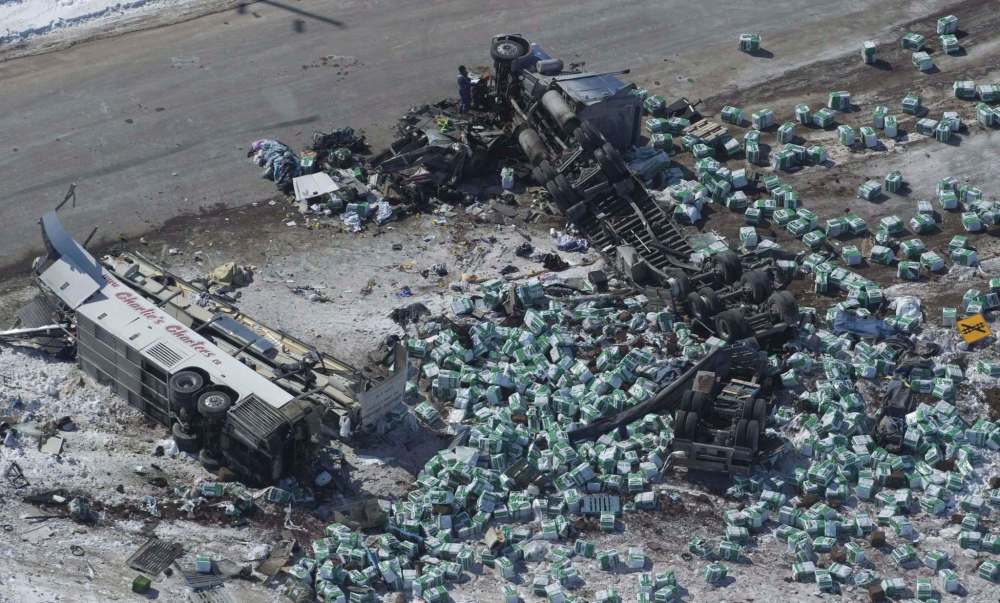Road safety is shared responsibility
Advertisement
Read this article for free:
or
Already have an account? Log in here »
To continue reading, please subscribe:
Monthly Digital Subscription
$1 per week for 24 weeks*
- Enjoy unlimited reading on winnipegfreepress.com
- Read the E-Edition, our digital replica newspaper
- Access News Break, our award-winning app
- Play interactive puzzles
*Billed as $4.00 plus GST every four weeks. After 24 weeks, price increases to the regular rate of $19.95 plus GST every four weeks. Offer available to new and qualified returning subscribers only. Cancel any time.
Monthly Digital Subscription
$4.99/week*
- Enjoy unlimited reading on winnipegfreepress.com
- Read the E-Edition, our digital replica newspaper
- Access News Break, our award-winning app
- Play interactive puzzles
*Billed as $19.95 plus GST every four weeks. Cancel any time.
To continue reading, please subscribe:
Add Free Press access to your Brandon Sun subscription for only an additional
$1 for the first 4 weeks*
*Your next subscription payment will increase by $1.00 and you will be charged $16.99 plus GST for four weeks. After four weeks, your payment will increase to $23.99 plus GST every four weeks.
Read unlimited articles for free today:
or
Already have an account? Log in here »
Hey there, time traveller!
This article was published 02/04/2019 (2488 days ago), so information in it may no longer be current.
Much has been written on the road safety tragedy involving members of the Humboldt Broncos organization. To those affected, we offer our genuine condolences.
With sentencing complete, one can see the levels of responsibility assigned to the parties involved in allowing this incident to occur.
The truck driver, Jaskirat Singh Sidhu, the person whose actions directly caused the death and injury of many, was given a sentence of eight years in jail. While this driver needs to accept responsibility for his actions, and it appears he has, he is by no means solely responsible for this incident.

What about Adesh Deol Trucking, the company Sidhu worked for? The owner recently received fines in the amount of $5,000 for a variety of safety infractions. These fines were deemed not related to the Humboldt incident. Many, both inside and outside of the trucking industry, believe that these fine amounts are entirely inappropriate to this company’s responsibility in this incident. How can being fined for “not having or following a written safety program” not be directly connected to this incident? That aside, the greater question is, how can someone be granted permission to start a trucking company without actually having a safety plan?
In Manitoba, the application for a safety fitness certificate is three pages. Nowhere in this application process does it require a copy of a safety plan to be submitted. As well, this application can be submitted by email or fax. There is no requirement for personal interaction with the prospective trucking company owner, let alone vetting of their safety plan or testing their knowledge of the National Safety Code.
I’ve never received a job without undergoing an in-person interview and providing a number of supporting documents (resumé, schooling, references, etc.). How is being given the authority to operate a trucking company on public roads across North America less involved?
Another point of concern is that there are very few effective tools currently being utilized to recognize when a trucking company shifts operations from one corporate identity to another without any meaningful change in ownership or practices around safety. This gap in the system allows for a company to simply change its corporate identity and resume operations under a different National Safety Code number when it gets served notice for poor safety performance or, as was reported in the case of Adesh Deol Trucking, when involved in a major incident.
While the majority of our industry members do not, and would not, engage in this practice, the fact is that it is a practice utilized by some operators. It needs to be shut down.
What the above examples highlight is that effective regulation and enforcement also play critical roles in road safety.
Government provides the authority for trucking companies to operate. Government issued the driver’s licence Sidhu held while operating that truck, despite his self-professed lack of “driving skill.” Government enforcement and audit staff allowed for this incident to be deemed the trucking company’s first offence, despite an obvious history of ongoing non-compliance. With this in mind, what should Manitobans be doing to drive increased accountability with those responsible for road-safety policy and oversight?
Jail time and fines are both tools in managing compliance. However, they are reactive tools. When those tools come in to play, the damage is done. No fine or jail time will undo that damage. What is needed is much more successful use of proactive tools. Those are the actions in which we need our government to be much more effective.
The Manitoba Trucking Association, and all other members of the Canadian Trucking Alliance, have delivered the “CTA Ten Point Action Plan to Raise the Bar for Truck Safety” to the federal government and all provincial governments. It includes a range of solutions which, if implemented in consultation with industry, will improve policy and practice around oversight of heavy-vehicle operators. The mandatory use of electronic logging devices, improvements around new company application requirements and a call for changes to on-road enforcement practices are just some of the elements included.
In recent days, many have had conversations on fines and other penalties relating to road safety. We believe strongly that the more appropriate conversation to be had revolves around proactive, effective and strategic regulation and enforcement of heavy vehicle users. This is the petition we have been making, and continue to make, to government. We encourage Manitobans who feel similarly to speak out accordingly.
Terry Shaw is executive director of the Manitoba Trucking Association.

